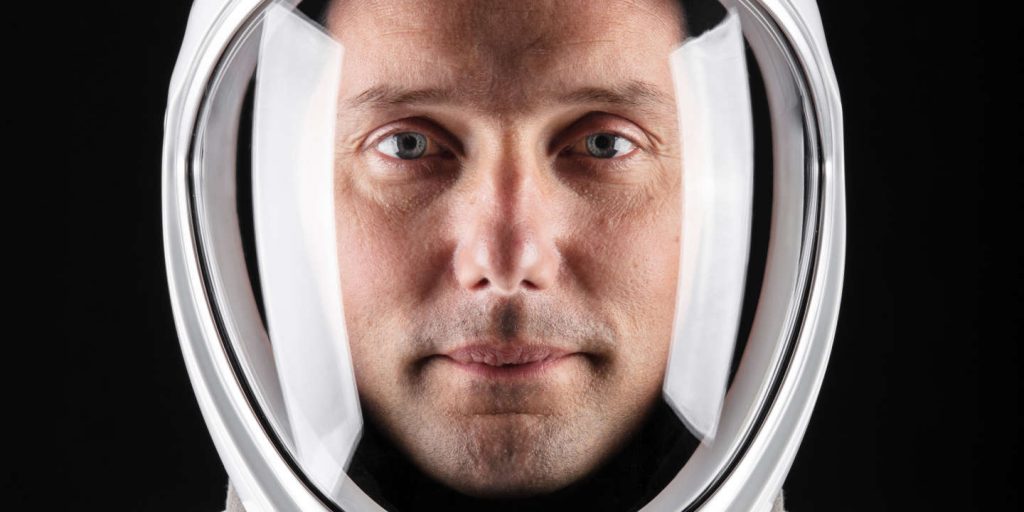
We know when it will hurt, when it will be long, and when it will be difficult
InterviewOn April 22, the French astronaut will be the first European to make a trip to the International Space Station aboard the SpaceX Crew Dragon crew. He delves into this second six-month stay at the station informed of the trials awaiting him, the scientific issues of his mission, and criticism of manned flights.
Thomas Pesquet, 43, is scheduled to take off Thursday April 22 from Cape Canaveral (Florida) aboard the SpaceX Crew Dragon capsule. Along with three other astronauts, he will join the International Space Station (ISS) on a six-month mission in orbit.
After staying for nearly two hundred days in 2016-2017, you will be the first Frenchman to carry out two missions on the International Space Station. What is the difference in approach between the first and second space flight?
The first journey is the culmination of a lifetime: we embark on an adventure with flower after flower, without really knowing how it will end or what to expect. Including the fact that it can sometimes be bothersome and painful. The second time around, we know exactly what’s going to happen. This doesn’t mean we’re less enthusiastic but we’re more careful: We know when it’s going to hurt, when it’s going to be long, and when it’s going to be tough. So we prepare more specifically for these moments.
what do you mean by ” This painful ” ?
It is true that sometimes people are surprised to hear it because we have such positive contacts that they have the impression that astronauts are walking on roses. It is not like that, it can hurt. During my first stay, I took four small pieces of muscle biopsies for the sake of science. When it doesn’t heal well, it’s a little complicated … Plus, it’s physically hard to force yourself to lift cast iron for two hundred days. There is also a position in a Soyuz capsule, during take-off or simulation exercises: after twenty minutes your knees are very sore and you have to stay two and a half hours in this position. And we must not forget the moments when it is painful on a psychological level … Sometimes we want to be with our loved ones, sometimes something happens on earth and we feel helpless, we want to be with our loved ones to help them, sometimes we are tired because we find things repetitive. It’s not easy to put yourself in space for six months.
What will your science program be during this assignment? How many trials are planned?
If we count all the experiments that we have to participate in, the range is between 180 and 200. For my part, as a space science engineer and pilot, I really like medical experiments. There are a lot of interesting experiments about the immune system or fighting cancer. For example, we have systems based on nanoparticles that allow us to deliver drugs into cancer cells. Studying them in the absence of gravity is more representative of how they float in the human body. We also have a business on aging because we know that a six-month space flight equals ten years of old age … reversible, fortunately for us – at least, that’s what we’re told! Another experiment will lead us to biopsy dormant mice to study healing mechanisms, because cells are not thought to behave the same way in the absence of gravity.
You have 67.82% of this article left to read. The rest is for subscribers only.

“Incurable web evangelist. Hipster-friendly gamer. Award-winning entrepreneur. Falls down a lot.”
